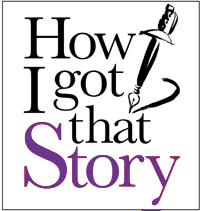After graduating from Earlham College in Indiana with a degree in English, Gus Garcia-Roberts, 25, wrote briefly as a sports writer for the Epoch Times and as a neighborhood beat reporter for the Gotham Gazette, an online community newspaper based in New York City.
An alumnus of the Academy for Alternative Journalism’s 2007 fellowship class, Garcia-Roberts was lured to the Scene in Cleveland, Ohio, near the fellowship’s end and started as a staff writer there in early September 2007.
In June, the Scene, a Village Voice Media publication, was acquired by Times-Shamrock Communications and merged with its rival, Cleveland Free Times. Garcia-Roberts was offered the opportunity to remain with VVM and accepted a transfer to the Miami New Times, where he is a staff writer.
How did you get these story ideas?
The “Wild, Wild West Bank” was actually a story I got from drinking at a bar. A really drunk woman at a little neighborhood bar — named Little Bar — found out I worked for the Scene and told me she had a great story. Then she got drunker and proceeded to do a Janet Jackson, standing on a stool and flashing a nipple to everybody in the place. I started to doubt how good her story idea would be. But when we met for lunch later, she was all business, laying out the conflict between the bar owners, residents, and clubbers, and giving me a bunch of pertinent phone numbers. It was all very convenient.
The phenomenon of meth heads stealing anhydrous was something I had heard about back when I lived in New York. I did some research when I got down to Cleveland, and Northeast Ohio turned out to be a perfect locale for the story — this state is one of the hardest hit by the meth epidemic in the country; and Trumbull County, which is near Youngstown, has it especially bad.
There seems to be a theme of conflict in your award-winning stories that seem to be about dissimilar pairs clashing — Ohioan farmers and meth addicts — was that a conscious decision?
Usually, I feel you almost need a conflict for every story. I’m always looking for the odd couple scenario. That’s why I got into the meth addicts versus farmers. These farmers are often untouched by urban problems and the addicts, there’s no better odd couple.
With the meth addict one, I had a really hard time. The Miller’s farm, I called them and got the dad who was saying, I’m not going to talk to you, and they were the only ones with anhydrous. At first I was driving from farm to farm and asking if they had any anhydrous. I’m sure they suspected I was a meth addict. I was sent on a chase from a feed store about a one armed farmer who had anhydrous thefts. I spent one afternoon chasing this one armed farmer named Rocko — I never found him. I just ended up going to the Miller’s farm and knocking on the door and the youngest one had no problem talking to me.
Explain if you would your reporting process — did it change on a particular story?
It sometimes takes me a day of futile phone calls to remember this, but the best way, I’ve found, to report a story, is just to drive right out to wherever the problem is and start banging on doors. With the nightclub story, the owner of Mirage, Dean Salivaris, wouldn’t return my calls. But I just went to the club, asked for him, and waited around a couple of hours. Eventually, he invited me to his office and was actually very gracious. The meth one was the same thing — the patriarch of the Millers wouldn’t speak to me, but when I just drove to the farm, I caught his son, who would.
As for the Dayton rims one, what I learned from that is don’t be afraid to call the publicist of a semi-coherent flash-in-the-pan rap star if his one-hit-wonder tenuously connects to the subject of your story. Rich Boy really doesn’t have anything better to do.
What advice do you have for young writers thinking about or just entering in the alternative press?
In terms of story ideas, think small. Don’t try to go for the award-winning investigative bombshell about the baby farm in the woman’s prison, because most likely, with limited connections, time, and know-how, you’re not going to be able to crush that. Find weird people in your area that have no idea why you’re writing about them, and do their strangeness justice. Stay low to the ground when reporting — banging on doors, talking to people who have never met a reporter before, that sort of thing.
Part of the 2008 “How I Got That Story” series, in which Academy for Alternative Journalism fellows reveal the processes of the writers and editors who won first-place AltWeekly Awards. These interviews also appear in Best AltWeekly Writing and Design 2008.

